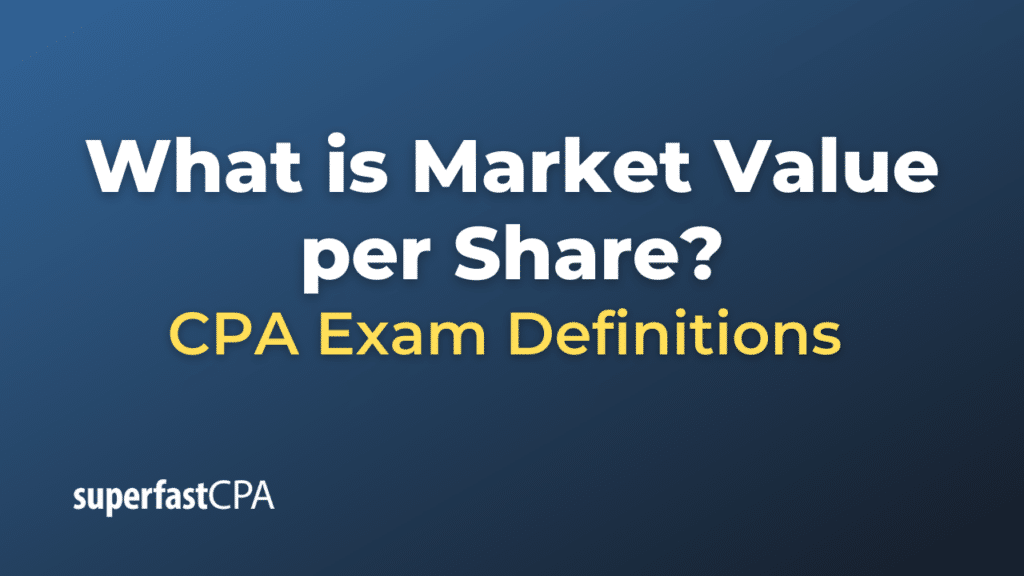Market Value per Share
The market value per share is the price at which a share of stock trades on the open market. It’s also commonly referred to as the “share price” or “stock price.” The market value per share is determined by the supply and demand for the stock in the marketplace.
This price fluctuates throughout each trading day due to a number of factors, including the company’s financial performance, the economic environment, investor sentiment, and news about the company.
For publicly traded companies, you can find the current market value per share by checking a stock market quote on a financial news website, a stock exchange website, or through a brokerage account.
It’s important to note that the market value per share may not reflect the true, or intrinsic, value of a share of the company’s stock. The intrinsic value is a theoretical price that reflects the company’s underlying earnings, assets, and growth prospects, and it can be more stable than the market price. Investors often try to buy stocks when their market price is below their estimated intrinsic value, in the belief that the market price will eventually move towards the intrinsic value.
Example of Market Value per Share
Let’s use a real-world example.
As of a specific trading day, let’s say that the market value per share (also known as the stock price) of Apple Inc. (AAPL) is $150. This price is determined by the supply and demand for AAPL shares on the stock market.
Investors and traders willing to buy shares submit purchase orders, and those willing to sell shares submit sale orders. If there are more buyers than sellers, the price may go up, and if there are more sellers than buyers, the price may go down. These transactions happen rapidly throughout the trading day, causing the price to fluctuate.
This market value per share is publicly available information. You can find it on various financial news websites, stock exchange websites, or your brokerage account.
Remember that the market value per share may not always reflect the intrinsic value of the stock, which is an estimate of the company’s true worth based on factors like its earnings, assets, and growth prospects. Some investors use strategies aimed at buying shares when their market value is less than their estimated intrinsic value, in the belief that the market value will eventually rise to match the intrinsic value.













